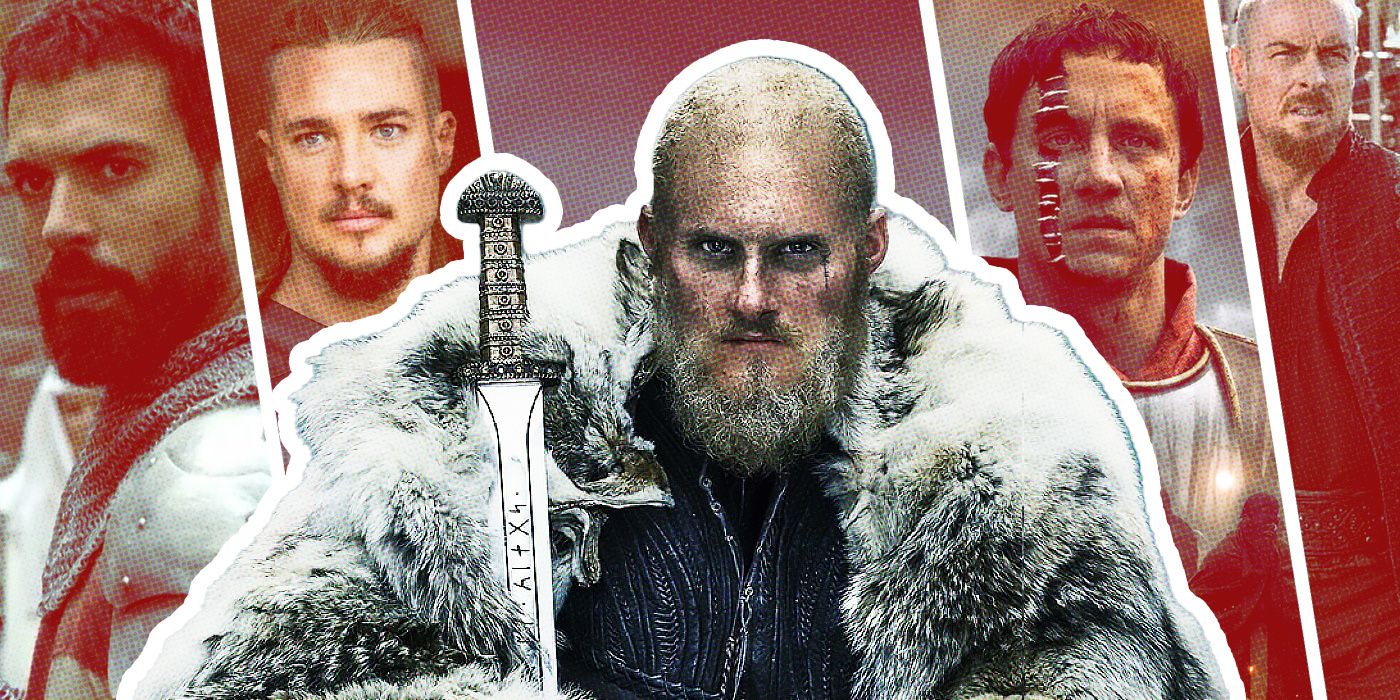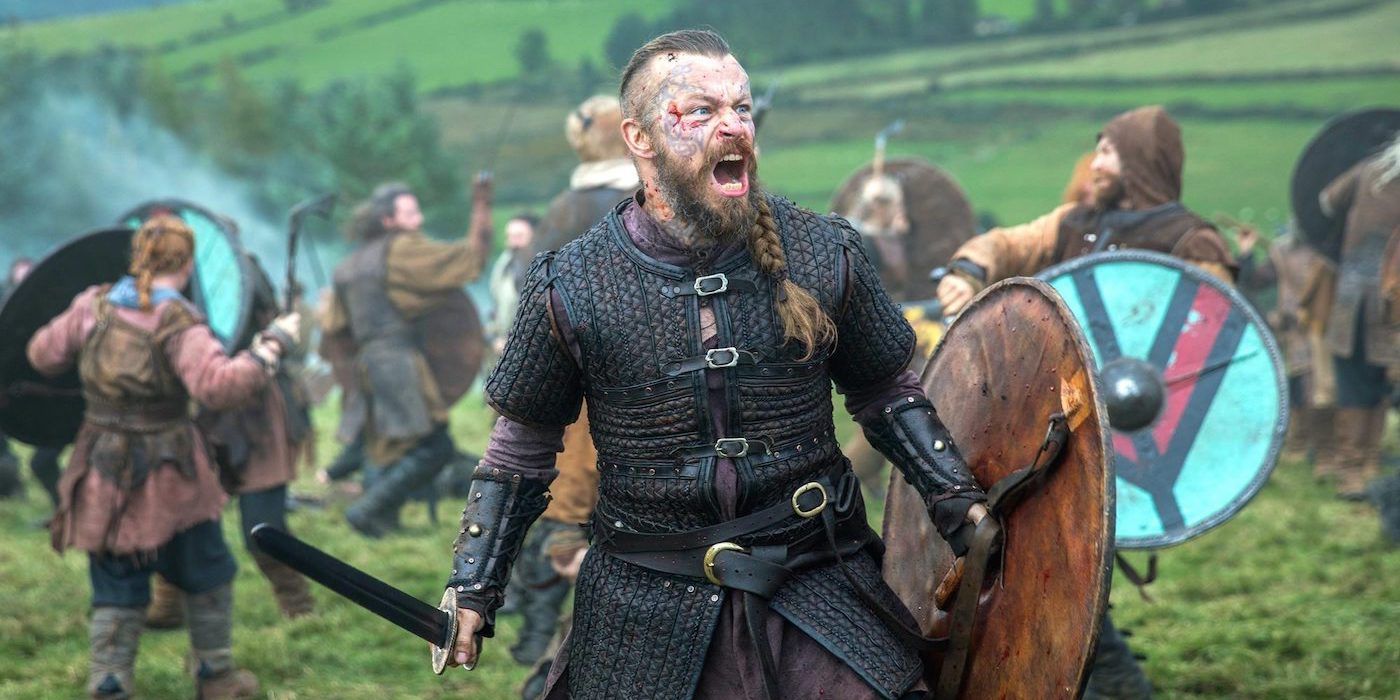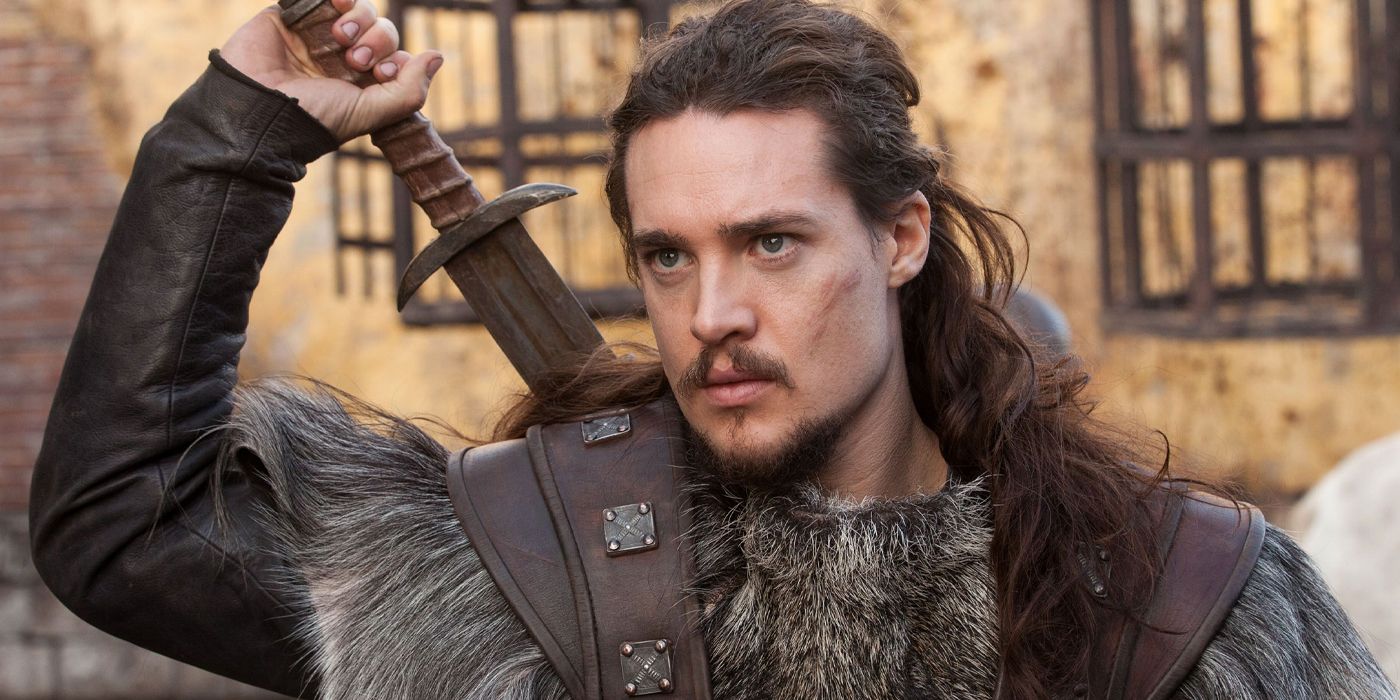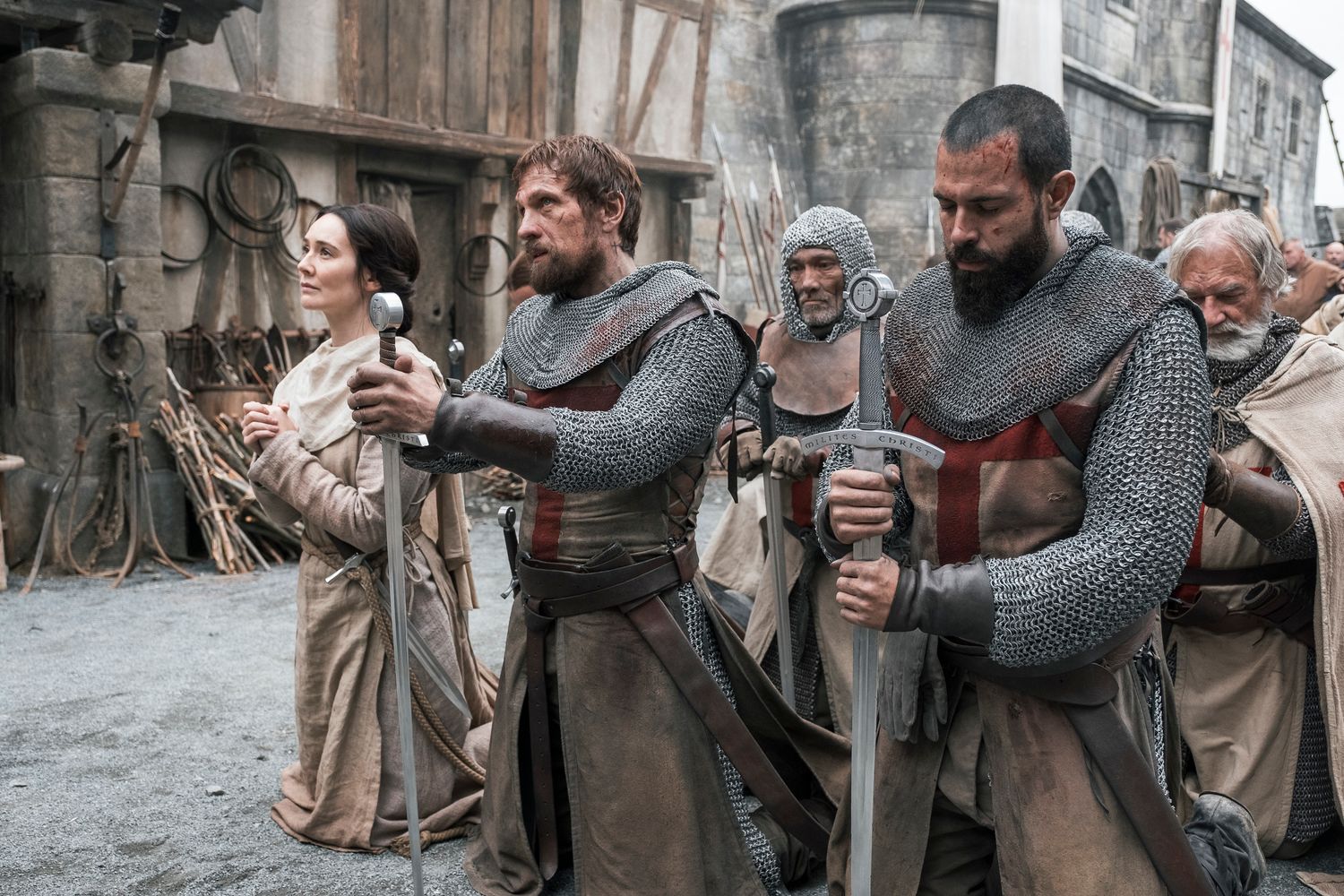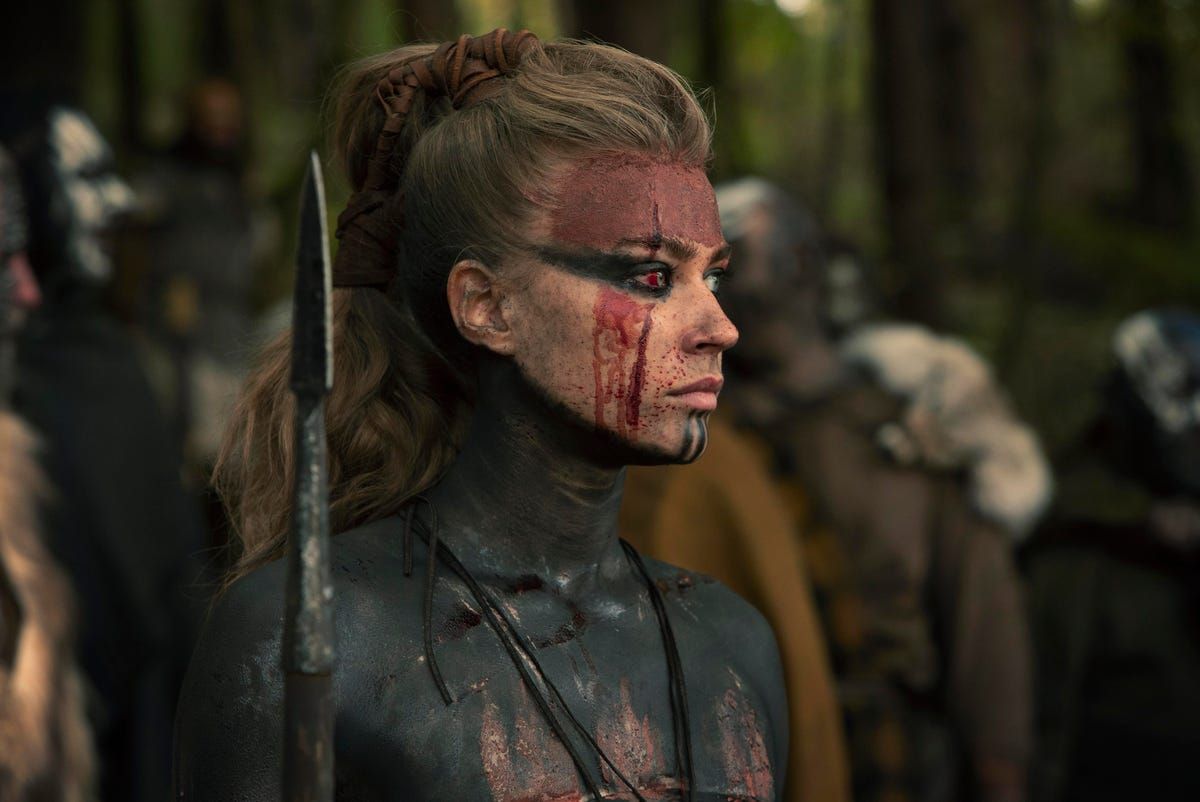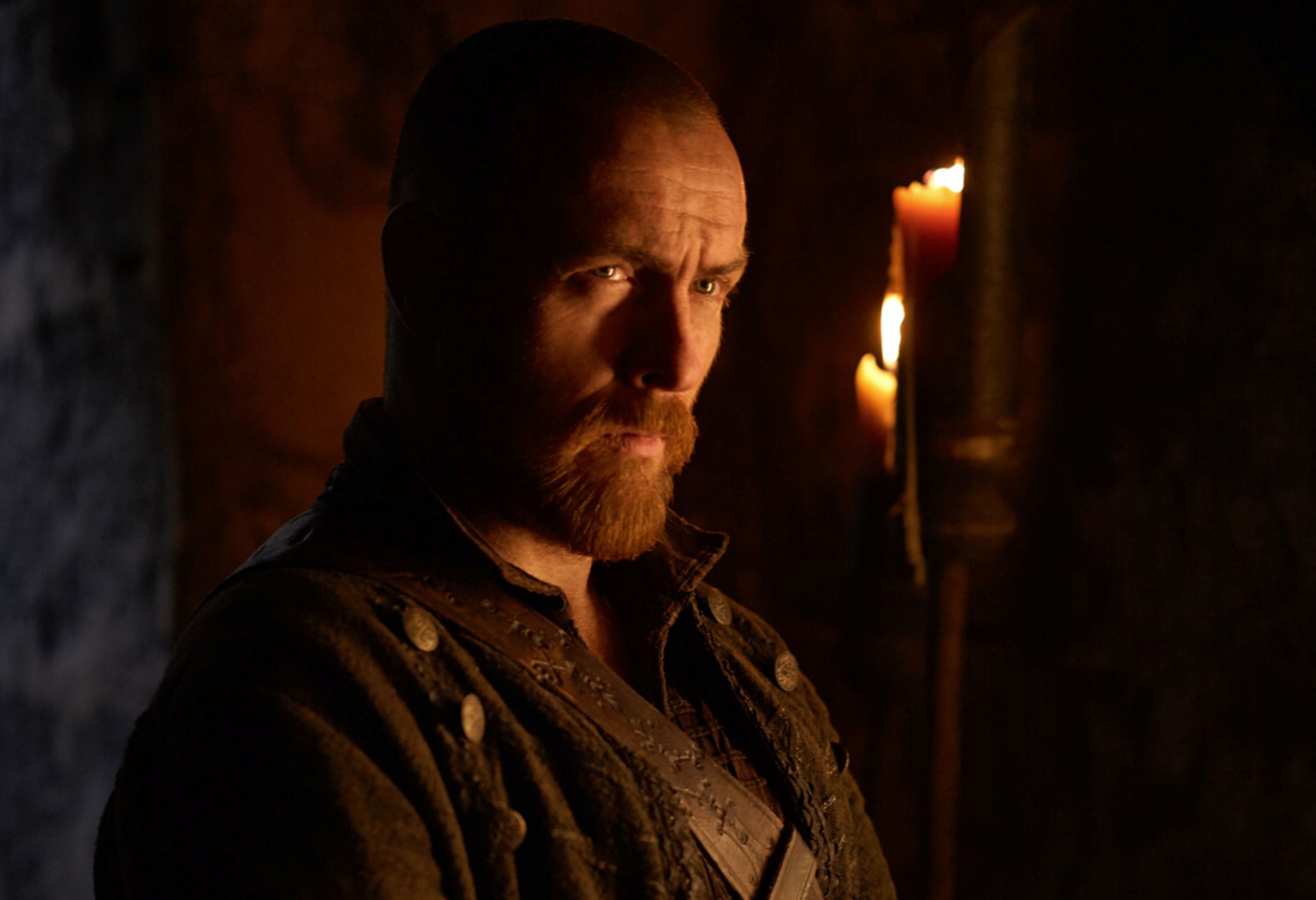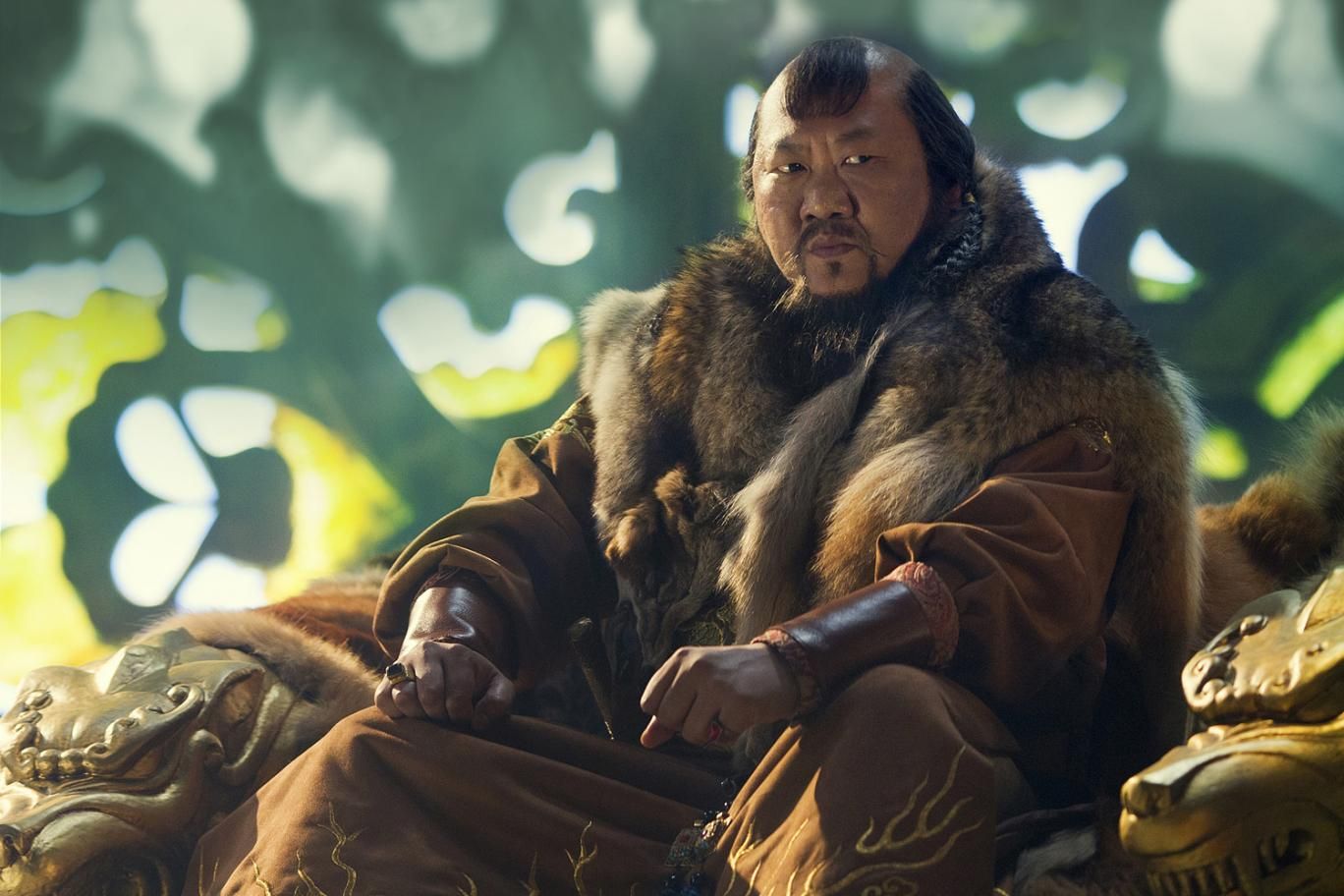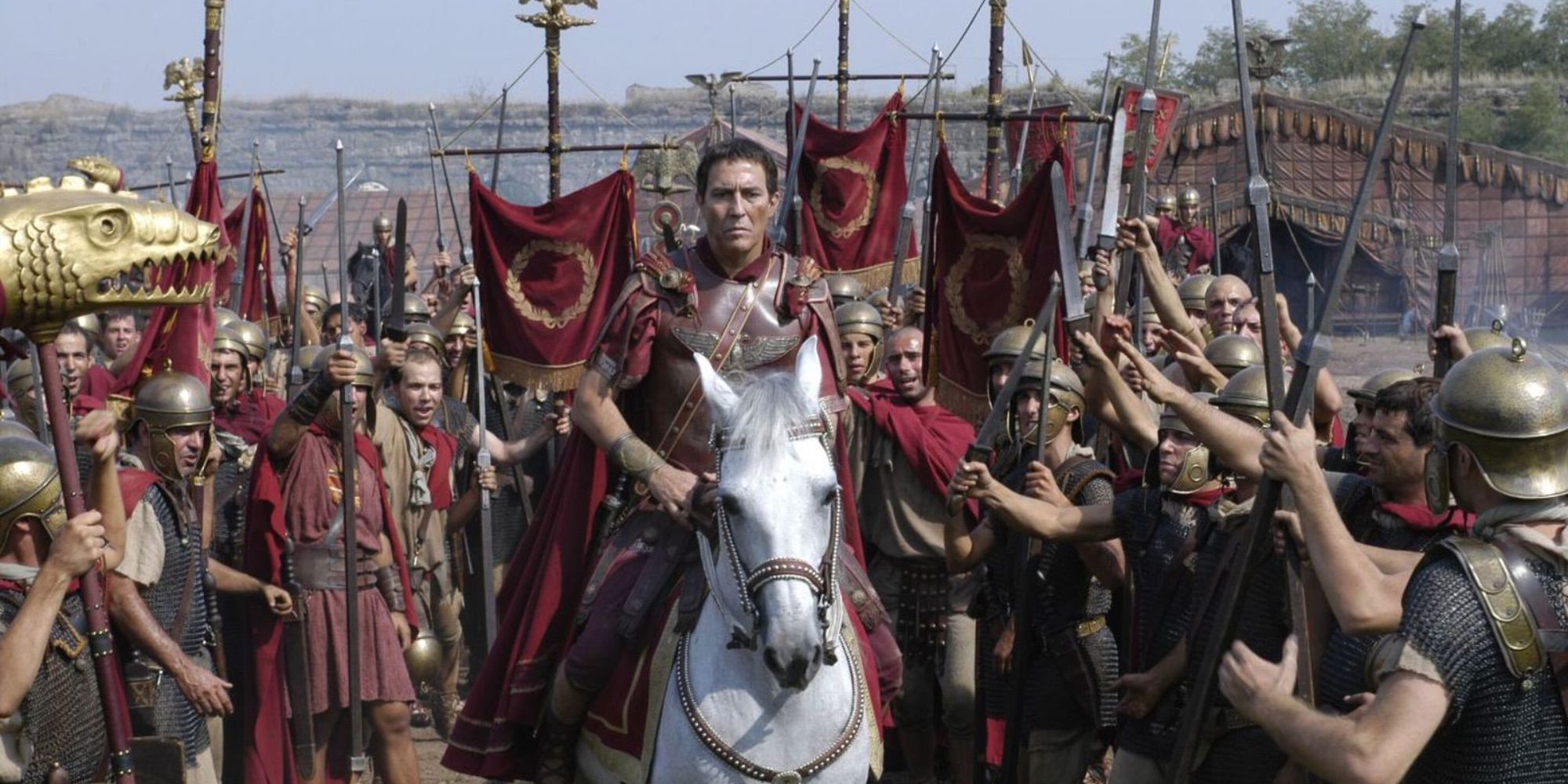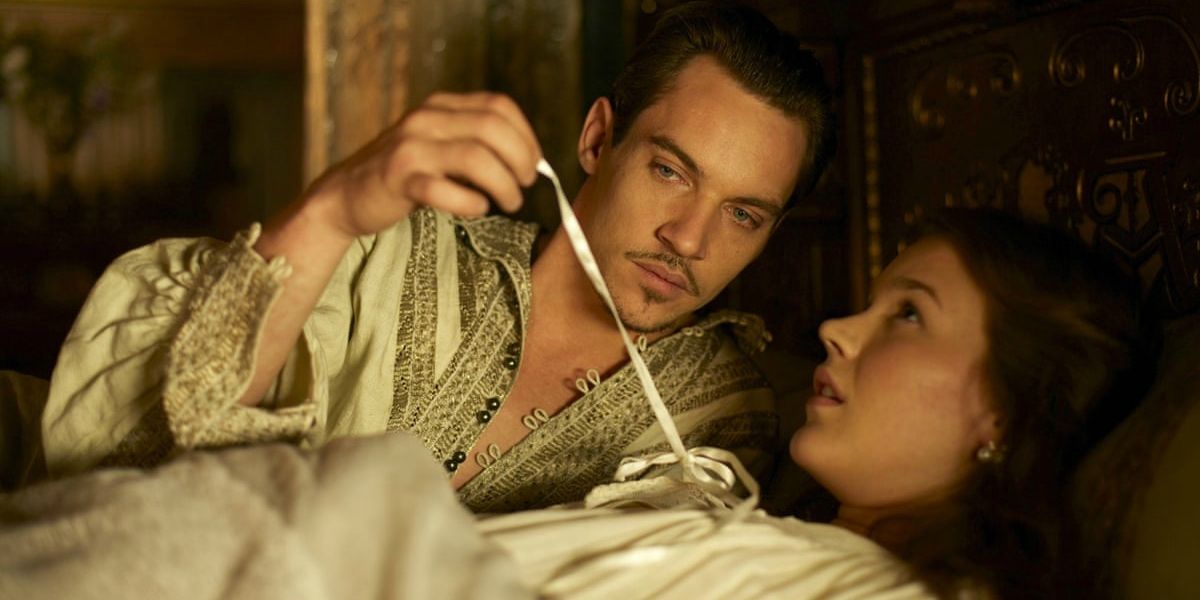Nine years ago, the History Channel launched a historical drama series featuring the Norsemen of early medieval Scandinavia. It soon became a highly successful show that would run for six seasons and 89 episodes. Many compared the series to its contemporary, Game of Thrones, but Vikings stood out in its own right.
Written and directed by Michael Hirst, Vikings boasts an ensemble cast featuring Travis Fimmel, Katheryn Winnick, Clive Standen, Steven Berkoff, Jessalyn Gilsig, Gustaf Skarsgård, Alexander Ludwig, Alyssa Sutherland, Peter Franzén, Alex Høgh Andersen, Marco Ilsø, Jordan Patrick Smith, and Ray Stevenson, among many others.
The series is inspired by the documented sagas of Ragnar Lothbrok/Lodbrok, a legendary and notorious Norse hero and a huge threat to Anglo-Saxon England and West Frankia. The show’s plot follows Ragnar’s journey from being a farmer to becoming a Scandinavian king with his series of raids and conquests across England, France, the Mediterranean, and North Africa. In the later seasons, the story continues with his sons, particularly two of them, who keep their father’s legacy alive by exploring trade routes and finding newer destinations to raid.
Vikings ran for six seasons and its popularity led to a sequel, Vikings: Valhalla. The Netflix original series comes from the same creators of Vikings but takes off 100 years from the events of Vikings.
An epic in every sense of the word, Vikings is considered to be one of the best historical dramas made for television in recent years. With a powerful narrative grounded in realism, exceptional production value, and absolute perfection in art design, costume, music, and beautiful cinematography, the show’s storytelling has the capacity to transport you to the early medieval ages.
While finding something exactly of its breadth is nearly impossible, there are quite a few historical dramas that can intrigue and excite you just as Vikings did. Each one of these series is packed with gritty drama, complex characters, astonishing historical facts, lots of sword fights, and of course, stunning cinematography.
The Last Kingdom
Based on The Saxon Stories by Bernard Cornwell, the series is set in the time when the Viking Danes conquered most of Britain except for Wessex, which still stands strong and protected under the rule of King Alfred. The plot follows Uhtred, an orphan from an English village, who is taken in as a slave by Earl Ragnar. He is then raised by the Vikings as one of their own and learns their ways of life and fighting. But things get complicated when he grows up and returns to England to claim his homeland back from his uncle. The show focuses on Uhtred’s challenges as a new Saxon but with a Viking's upbringing. His loyalties are tested when he reaches a point of choosing between the ones who raised him and those who define his origin.
Like Vikings, The Last Kingdom is also packed with a lot of gore action, deception, and decadence. This show is the perfect segue from Vikings and shows the Anglo-Saxon side of the story. The premise of this historical drama series makes for one of the most remarkable moments in European history when the two parties were at peace with each other, but delicately so.
The Last Kingdom premiered in 2015 and ran for five seasons, with the final season airing in March 2022.
Knightfall
The success of Vikings paved the way for Knightfall, the next big historical drama on the History Channel. In fact, it also kind of follows Vikings’ footprint of storytelling and builds an intricate drama built around real facts, which makes this show very interesting. The only difference is that Knightfall is set around the 14th century and tells the story of the Knights Templar.
The series focuses on the events surrounding the rise and fall of the Knights Templar, as orchestrated by King Philip IV of France, but is built around a fictional protagonist, Landry de Lauzon. Landry is a disenchanted knight and a brave warrior who loses his faith in the Templars after their failures. But when he learns that the Holy Grail has resurfaced in France, his faith, loyalty, and brotherhood are restored.
Knightfall premiered in 2019 and although it was canceled after two seasons, the historical series merits a watch.
Barbarians
The Viking and Barbarian tribes had a lot in common, not only in their reputation for being violent but also in their Germanic origin, cultural values, and the way they fought. This series will show you just that.
The Netflix original German series is very much like Vikings in its concept and storytelling. Barbarians is a fictional recount of the history of, well, Barbarians. The series follows the events of 9 AD surrounding the Roman Empire’s occupation of Magna Germania, and how it led to a war between them and the oppressed Germanic tribes. The plot follows Arminius, a hostage of the Roman Imperial Army who unites his tribe and ignites a rebellion to overthrow the Romans at the Battle of the Teutoburg Forest.
Like Vikings, Barbarians also tells the story of an ancient community and how they lived and fought powerful civilizations. And it also features a lot of inter-tribal conflicts, ancient politics, and violent battles.
Barbarians premiered on Netflix in 2020 and was renewed for a second season, coming in late 2022.
Black Sails
For those of you who have grown up reading or hearing the stories of Long John Silver and Captain Flint, Black Sails gives you a visual representation of those stories. The series explores the history of pirates in the Golden Age of Piracy and offers a dangerously alluring journey into the world of swashbucklers.
The story of Black Sails is pegged as the prequel to Robert Louis Stevenson’s Treasure Island and focuses on Captain Flint and his crew 20 years before the events of Treasure Island. Flint leads a much younger crew on an endless search for treasures and in his attempts, he plunders and wreaks havoc on the high seas. Also, on their adventures, they meet a lot of people, including historical figures and legends who test their skills, patience, and survival.
If you like pirates and if you have loved Vikings, then you’ll find a lot of similarities between the two shows. Apart from the fact that both these communities are known as marauders and raiders, there are a lot of personal conflicts and complex drama, with surprising twists and tensions, that are common between the two. Black Sails also matches up to the production values of Vikings, including art direction, costumes, and cinematography. Most importantly, if you are feeling a little vacant after Vikings, then Black Sails has all the ingredients to replace that.
Marco Polo
Moving on from medieval Europe, here’s a series that will take you to the days of the Mongol Empire. The show features the journey and life of Marco Polo. The Venetian explorer was known for his prolific discoveries of newer lands. Marco Polo gives a rare but detailed peek into the rich and deep-seated Asian history with a focus on China and Mongolia.
The plot focuses on his adventures in 13th century Mongolia, where Marco Polo gets entangled in the politics and power struggle of the Mongol Empire. It follows the explorer in his early years of exploration when he lands in the court of Kublai Khan the Mongol legend and founder of the Yuan Dynasty. It is the story of a young and extraordinary man who gets pulled into the dark and dangerous world of politics and warfare.
While you may not be able to relate this show to Vikings, Marco Polo has its distinctive style of storytelling that builds up gradually but manages to capture your attention eventually. Although the show got canceled after two seasons, it received great reviews among fans and viewers and also an honorary award from the President of Mongolia.
Rome
A threatening and awe-inspiring name that occupies a big chunk of ancient and medieval history, Rome had an impact on almost all of modern human civilization. This historical drama series captures the last days of the Roman Republic, during the 1st century B.C, before it became an autocratic empire.
The plot follows the transition period of the kingdom and focuses on Octavian Augustus, Lucius Vorenus, Titus Pullo, and a few other historical characters of the time, most of which are fictional.
Now, Rome is nothing like Vikings. Then why is it on this list? Because, if you notice, apart from hard-hitting actions, Vikings also have a lot of different angles to process in the back of your mind. The same is the case with Rome, which is more narrative-driven and has a lot for the viewer to absorb. But that doesn’t mean, the series lacks anything visually. The decadence of the Roman Empire is nicely balanced with the stunning and glorious depiction of the ancient kingdom. Created by John Milius, William J. MacDonald, and Bruno Heller, Rome stars Kevin McKidd, Ray Stevenson, Ciarán Hinds, Kenneth Cranham, Lindsay Duncan, Tobias Menzies, and Indira Varma in leading roles.
The Tudors
The history of England is incomplete without the Tudors, especially the story of King Henry VIII. The legendary royal was famed for his lustful and abandoned lifestyle, and being shamelessly so.
The plot of The Tudors focuses on the young king when the kingdom was under a lot of political threat from its enemy nations, and he struggles with his thirst for power while he marries a series of women to fulfill his desire for a male heir. A fictional depiction of Henry VIII, the series gives an interesting and almost compelling perspective to the king’s life and his personal relationships with the women in his life, his comrades, and his adversaries, how he deals with opposition, betrayal, and love.
The Tudors might not be anything like or close to Vikings, but there’s one big common factor between these two historical epic series. The Tudors come from the same creator and writer as Vikings, Michael Hirst. From the point of the narrative, The Tudors is an equally powerful and entertaining drama like Vikings, portraying the endless fight for power and struggle to rise to the top of the chain.
The ensemble cast of The Tudors features Jonathan Rhys Meyers, Henry Cavill, Sam Neill, Callum Blue, Henry Czerny, Natalie Dormer, Nick Dunning, Peter O’Toole, and many others.

